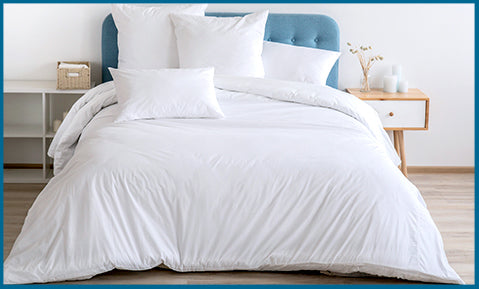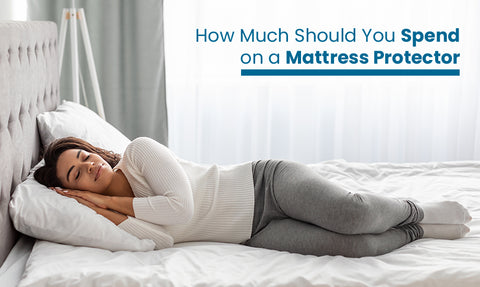
We often tend to follow monophasic patterns of sleep, where we sleep for a stretch of 8-9 hours at the night, otherwise, we follow biphasic where we have one short nap in the afternoon and a core sleep time at night, as normal monophasic sleepers, but have you ever heard of the term polyphasic sleep patterns?
Well, the name itself suggests that it includes multiple short naps per day, however, the duration of naps and the number of sleeping hours vary from those of monophasic sleepers, usually, the number of sleep hours in polyphasic sleepers ranges from 2- 4 hours, depending on the type of historical polyphasic sleep techniques.
Historically, there are three types of polyphasic sleep patterns, with few distinguishing aspects in them.

TYPES OF POLYPHASIC SLEEP TECHNIQUES:
DYMAXION SCHEDULE
- In this schedule an individual gets nearly 2 hours of sleep, where they take 30 minutes of nap every six hours, for example, they take a nap of 30 minutes from 12 am to 12:30 am, followed by remaining awake till 6:00 in the early morning and then take a nap from 6:00 am- 6:30, this sequence will be continued during the whole 24 hrs in a day.
UBERMAN SCHEDULE:
- In this schedule, the individual takes a nap of 20 minutes every four hours contributing to a whole of just 2 hours of sleep per day, taking naps at 12:00 -12:20, 4:00-4:20 am, 8:00-8:20 am, and so on with gap of four hours of awakening.
EVERYMAN SCHEDULE:
- This sleep schedule is quite a different schedule from the dymaxion and uberman sleep schedule, which includes a little longer duration of sleep at night comparatively, i.e., a nap from 12:00 am to 3:00 am that counts as 3 hours of sleep at night, followed by 3 naps during the day time consisting 20 minutes each, thereby, having 1 hour of daytime sleep, together with 3 hours of night time sleep, altogether an individual gets nearly 4 hours of sleep per day.
ADVANTAGES OF POLYPHASIC SLEEP SCHEDULES
Although there are no research pieces of evidence related to the benefits of polyphasic sleep schedules, however, there may be more advantages to these sleep patterns, according to anecdotal comments from polyphasic sleepers, although the science is not clear on this
PRODUCTIVITY CLAIMS:
- Followers of polyphasic sleep regimens frequently describe anecdotal evidence of improved alertness, productivity, and capacity for learning and memory, nevertheless, these claims are not backed up by any reliable evidence.
- Perhaps the reason behind their feeling of being productive is, the available number of hours to work on their tasks which is significantly much greater than the usual monophasic sleepers, i.e., 21 hours, since they would only sleep for 3 hours in a day as per any of the historical sleep schedules of polyphasic sleep schedules, unlike the monophasic sleepers who spend 8-9 hours of their time in sleeping.
MEMORY AND LEARNING CLAIMS:
- A related study states that taking a nap within an hour of learning new words helped young children retain those words for up to a week later, similarly sleep helps an adult in their memory retention.
- However, these benefits related to memory and learning cannot be experienced in those with uberman and everyman polyphasic sleepers, having sleep periods of less than 30 minutes, cannot affect or contribute to any significant impact on your learning.
DISADVANTAGES OF POLYPHASIC SLEEP
DISRUPTION OF THE NATURAL SLEEP CYCLE
- Researchers looked at the sleep routines of 61 undergraduate students in a 2017 study trusted Source and related their sleep patterns to their academic achievement.
- According to the study's findings, pupils with irregular sleep patterns experienced circadian rhythm disturbances, so when your natural sleep cycle is disturbed that means the whole system is disturbed and it leads to similar problems caused due to sleep deprivation such as Anxiety, high blood pressure, diabetes, heart diseases, and depression.
INSUFFICIENT SLEEP

- According to the center for disease and control, the average number of hours of sleep that an adult requires is nearly seven to nine hours.
- It is important to note that none of these polyphasic schedules (dymaxion, Uberman, and Everyman) meet the standard recommendation for a minimum of seven hours of sleep.
- Although shift workers feel this schedule can help them to be productive, this is only beneficial for a brief period, whereas, in the long term this will bring a serious impact on their overall well-being.
ROAD ACCIDENTS

- Getting enough sleep each night affects how quickly you can react to events during the day. Our ability to react fast can keep us safe in a variety of situations, including preventing car accidents on the road, grabbing a falling object at work, and avoiding being struck by large machinery, therefore lack of minimum number of sleeping hours in such polyphasic sleepers, the risk of such road accidents is high.
- A survey found that at least 60 percent of drivers admitted to being sleepy while driving and drowsy driving contributes to up to 6,000 fatal car accidents, per year, according to the Centres for Disease Control and Prevention.
IMPACT OF POLYPHASIC SLEEP PATTERNS ON SLEEP CYCLES:
Over the course of the night, your body moves via four stages of sleep, which include:
- N1: This stage of sleep, which lasts one to five minutes, is the lightest. Your respiration, heart rate, and muscles will all slow down during this phase.
- N2: This performance lasts between 30 and 60 minutes. Your body temperature decreases, and your breathing, and pulse rate become even slower
- N3: Deep sleep is another name for the third stage of sleep. Your body restores wounded tissues and cells throughout this 20 to 40-minute interval, here N1, N2, and N3 represent nonrapid eye movements.
- REM (Rapid eye movement): The stage most closely connected with dreaming is REM. Your initial REM phase lasts approximately 10 minutes, while the last one might last up to an hour. Many supporters of the Uberman schedule claim that they have greater energy and can enter a rapid eye movement (REM) sleep more rapidly than with a monophasic sleep pattern.
- It takes roughly 90 minutes to complete one cycle, and on a regular night, you will go through each stage of sleep four to six times.
- However, this frequency or the number from 4 - 6 gets reduced to 2, and you can only cycle through these stages twice while following the polyphasic patterns.
POLYPHASIC SLEEP PATTERNS AND GENE MUTATIONS

We all know, the fact that every one of us is different in different ways, and has got certain genetic variations, similarly they are few individuals who are born with certain genetic mutations due to various reasons.
However, these genetic mutations can lead to various disturbances in the functioning of the body and at times it can be beneficial too, for example, the individual with mutations in the ADRB1 gene can live healthily, even if they sleep less than the normal recommended sleeping hours since this gene mutation helps the people to have short sleep, without negatively affecting their health.
Another piece of evidence that suggests that certain gene mutations might help people to have short sleep includes the example of Buckminster Fuller, who developed the Dymaxion schedule in the 1920s.
According to reports, Fuller followed this routine for two years, working for a while, taking a quick nap, and then starting up again, where he could work, socialize and take care of everyday responsibilities.
Some people proclaim that the reason behind Fuller's success was due to a rare mutation of the DEC2 gene, in his body, sometimes referred to as the "short sleep gene."
DO YOU REALLY HAVE TO TRY THIS, “POLYPHASIC SLEEP”:
- According to Avidan, the director of the University of California Los Angeles Sleep Disorders Centre, there is very little evidence, in fact, there is absolutely no evidence in the medical literature, of carefully conducted clinical research proving that polyphasic sleep has any benefit in human sleep medicine."
- Therefore, the answer to your question should you really try polyphasic sleep? is a NO, because it is evident that sleep at least 6-7 hours is all you need to keep all your bodily functions working absolutely normally, however, if the circumstances compel you to follow this sleep patterns try sleeping at least 4 hours at night and then 1 -2 short naps in the day time until that particular period, and then get back to your normal sleep schedule for a minimum of 8 hours.
- Above all, don’t force yourself into any sleep patterns unless it’s absolutely mandatory such as in night shift workers.
- Over the course of the night, your body moves via four stages of sleep. It takes roughly 90 minutes to complete one cycle, and on a regular night, you will go through each stage of sleep four to six times.
- However, this frequency or the number from 4 - 6 gets reduced to 2, and you can only cycle through these stages twice while following the polyphasic patterns.
CONCLUSION
- One can follow a polyphasic schedule by equalizing the number of hours recommended to be slept per day, for example with one or two short naps in the daytime, and with a core sleep for 5-6 hours at night, otherwise following any of the above-discussed, three historical sleep schedules can worsen your health in all the way possible.
- In fact, as there is no proven piece of polyphasic sleep benefits and there exists unreliable(anecdotal) reports from polyphasic sleepers, its better to stick to the monophasic (a stretch of 8 hours of sleep at night) or biphasic (one short nap at the -afternoon together with 6 hours of sleep at the night), so as to not to disturb your internal clock and any other bodily functions.












